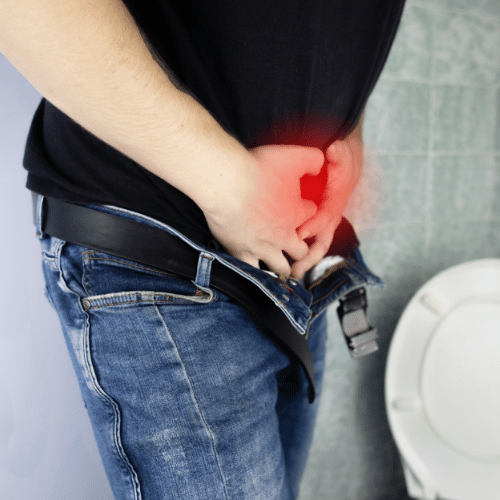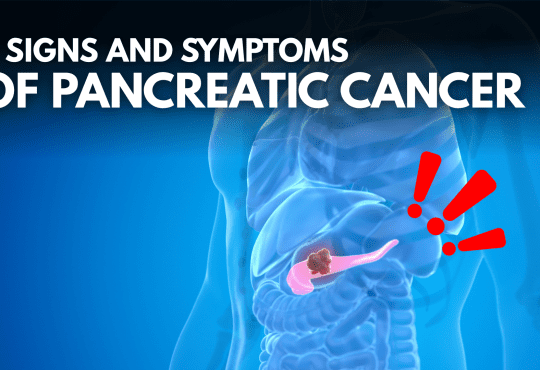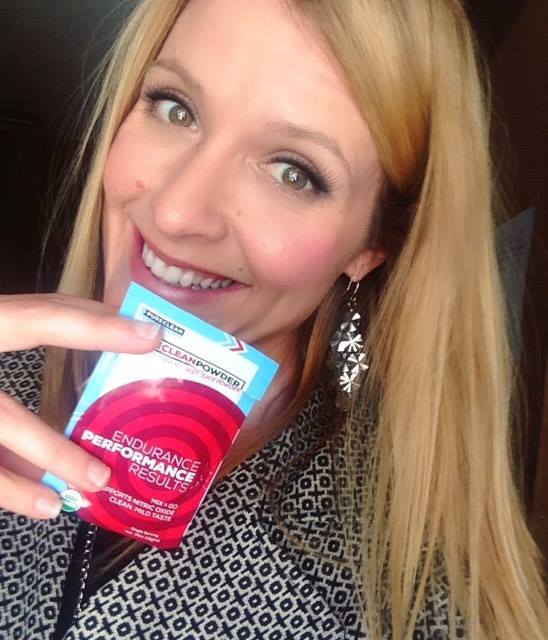
Critical Prostate Cancer Signs You Should Never Ignore
Today, we’re tackling a subject that’s crucial for all the men watching, and truly, it’s something everyone around them should be clued into as well.
We’re zeroing in on prostate cancer.
Now, this isn’t just another health talk. Understanding the early signs of prostate cancer can be a literal lifesaver, given that early detection plays a massive role in successful treatment outcomes.
Prostate cancer is one of those conditions that can sneak up quietly.
According to the American Cancer Society, it’s the second most common cancer among men in the United States, affecting millions every year.
But here’s a piece of good news—when caught early, the survival rates are incredibly high.
That’s why being in tune with your body and catching those early signs can make all the difference.
So, let’s dive into those critical prostate cancer signs you definitely shouldn’t ignore.
Trust me; this is one list you’ll want to remember.
5. Trouble in the Bathroom
Kicking off our countdown at number five, we’re talking about changes in urination patterns.
Now, it might not be the most comfortable topic, but it’s a vital one.
If you notice it’s becoming difficult to start urinating, or if the flow just isn’t as strong as it used to be, or maybe you find yourself getting up several times in the night to go – these are signs you shouldn’t just brush off.
Changes in urination are among the earliest indicators of prostate issues.
The prostate gland, located just below the bladder and surrounding the urethra, can, when enlarged or inflamed, press against the urinary tract, affecting how you pee.
This condition is medically known as Lower Urinary Tract Symptoms (LUTS) and is closely associated with prostate health.
A comprehensive review published in the European Urology journal highlighted how LUTS are significantly linked with prostate enlargement and can be early markers of prostate cancer.
While many men experience some form of LUTS as they age, usually due to benign prostatic hyperplasia (BPH), it’s crucial not to immediately dismiss these symptoms.
BPH and prostate cancer can share similar early signs, making it essential to get any changes checked out.
So, if you’re experiencing any of these bathroom troubles, it’s more than just an inconvenience—it could be your body signaling something’s up with your prostate.
Whether it’s benign enlargement or something more serious like cancer, the best step is to consult with a healthcare provider.
They can conduct tests, possibly including a Prostate-Specific Antigen (PSA) test, to determine the cause and best course of action.
4. Blood Where It Shouldn’t Be
Moving on to number four on our list, we encounter a sign that’s sure to grab your attention—blood in your urine or semen.
Though it might not be the most frequent symptom men encounter, its presence is a red flag that shouldn’t be ignored.
Discovering blood where it normally shouldn’t be can understandably be alarming.
This symptom, known medically as hematuria when it involves urine, and hematospermia for semen, can have several causes, ranging from infections and inflammations to injuries.
However, it’s also associated with more serious conditions like prostate cancer.
According to research, while hematuria and hematospermia are more commonly linked to benign conditions, they can also be early indicators of prostate cancer.
A study highlighted in the Journal of Urology pointed out that in the absence of other more benign symptoms, the presence of blood in urine or semen should prompt further investigation for potential malignancies, including prostate cancer.
It’s crucial to approach this symptom with a cautious but proactive mindset.
If you notice blood in your urine or semen, it’s not a time to wait and see.
Making an appointment with your doctor for a thorough examination is the safest step.
They might recommend a series of tests, including urine analysis, ultrasounds, or even a biopsy, to get to the root of the issue.
Remember, the goal here isn’t to cause unnecessary alarm but to encourage taking signs your body is giving you seriously.
Early detection of prostate cancer significantly improves treatment success rates, and noticing and acting upon symptoms like these can be a key part of that early detection strategy.
3. Aches and Pains
Landing at number three on our list is a symptom that can be easily mistaken for general wear and tear of life but warrants a closer look—persistent aches in the pelvis, lower back, or hips.
It’s those nagging pains that seem to have no clear cause, not linked to pulling a muscle at the gym or that weekend DIY project gone wrong.
When prostate cancer begins to advance, it can metastasize, or spread to the bones.
This spread is most commonly to the pelvis, spine, ribs, or hips, leading to continuous pain in these areas.
This kind of pain, especially when not associated with recent physical activity or injury, can be a telltale sign of something more serious going on beneath the surface.
A study highlighted in the International Journal of Cancer found that bone metastases from prostate cancer could present as persistent, unexplained pain in the regions most likely to be affected.
This makes it crucial to listen to your body and seek medical advice if you’re experiencing persistent discomfort that doesn’t seem to have an obvious cause.
It’s easy to attribute new aches to getting older or to day-to-day activities, but if these pains are persistent and unexplained, it’s worth discussing them with your doctor.
They can conduct or order scans, such as MRIs or bone scans, to look for the cause of your discomfort.
Identifying prostate cancer before it spreads significantly increases the effectiveness of treatment options and can prevent the pain associated with metastases.
So, being proactive about your health is key.
Persistent pain shouldn’t be normal, and getting it checked out can provide not only peace of mind but also, potentially, early detection of issues like prostate cancer.
2. Bedroom Troubles
Nearing the top of our list at number two, we delve into a topic many find difficult to discuss—erectile dysfunction (ED).
It’s a sensitive issue, indeed, but facing it head-on is crucial, especially since difficulties with achieving or maintaining an erection can sometimes signal prostate cancer.
ED is complex, influenced by a myriad of factors including emotional stress, physical health, and more.
Yet, when erectile dysfunction emerges without a clear reason, it’s a signal that shouldn’t be ignored.
Erectile function is closely linked to the prostate’s health.
Prostate cancer can interfere with both the nerves and blood supply needed for an erection.
It’s not the most common early sign of prostate cancer, but it can be a symptom, especially as the disease progresses or depending on the cancer’s location.
A comprehensive review in the Journal of Sexual Medicine sheds light on the connection between prostate health and erectile function.
It highlights how changes in erectile function can sometimes precede the diagnosis of prostate cancer.
This relationship underscores the importance of not brushing off ED, particularly when it’s a new development.
Addressing ED can feel daunting, but it’s a step worth taking for your overall health.
If you’re experiencing new or worsening erectile difficulties, it’s time to have a candid conversation with your healthcare provider.
They can help determine the underlying cause, which, aside from prostate cancer, might include cardiovascular disease, diabetes, or hormonal imbalances, and guide you toward appropriate treatment or further evaluation.
Remember, discussing ED can not only potentially help catch serious conditions like prostate cancer early but also improve your quality of life.
Advances in treatment mean there are many options available to manage ED and underlying health issues, so reaching out for help is the first step toward resolution.
1. Losing Weight Without Trying
Here we are at the top of our list, and it’s a sign that’s as straightforward as it is concerning—unexpected weight loss accompanied by fatigue.
It’s that moment when you realize your clothes are fitting looser, and you haven’t been trying to lose weight.
You haven’t changed your diet, you’re not exercising more than usual, but the pounds are dropping off.
And to make matters more puzzling, you’re always feeling worn out.
This combination of unexplained weight loss and constant fatigue can be a major alarm bell for various health issues, including prostate cancer.
While these symptoms can be associated with many conditions, their appearance together, without any clear cause, warrants a closer examination.
The connection between prostate cancer and weight loss might not be direct, but as cancer progresses, it can affect your body’s ability to maintain weight.
Fatigue, on the other hand, could be related to the body’s effort to fight the cancer.
A study published in the Cancer Epidemiology, Biomarkers & Prevention journal found that significant weight loss could be a precursor to a diagnosis of advanced prostate cancer.
This research highlights the critical nature of paying attention to your body’s cues, even when they seem unrelated to your prostate or overall health.
Unintended weight loss and fatigue can creep up subtly, making it easy to write them off as just being overworked or stressed.
However, they’re your body’s way of signaling that it needs help.
If you’re experiencing these symptoms, especially if they’re persistent or severe, it’s time to talk to your doctor.
They can perform a thorough evaluation, potentially including blood tests, imaging studies, and other diagnostics, to get to the root of the issue.
Alright everyone, that wraps up our countdown of the ‘5 Critical Prostate Cancer Signs You Should Never Ignore.’
Prostate cancer, when caught early, can often be treated successfully, which is why being aware of these signs and taking action is so crucial.
Remember, it’s not just about staying informed for your own health, but also for the men in your life—fathers, brothers, friends, or partners.
Sharing this knowledge can make a real difference.
It’s a great way to show your appreciation and support for the content we create.
Your generosity fuels our mission to provide valuable, life-saving information to all of you.
Do you have any thoughts or experiences about prostate health?
Drop them in the comments below. We love hearing from you and your input makes our community stronger.









